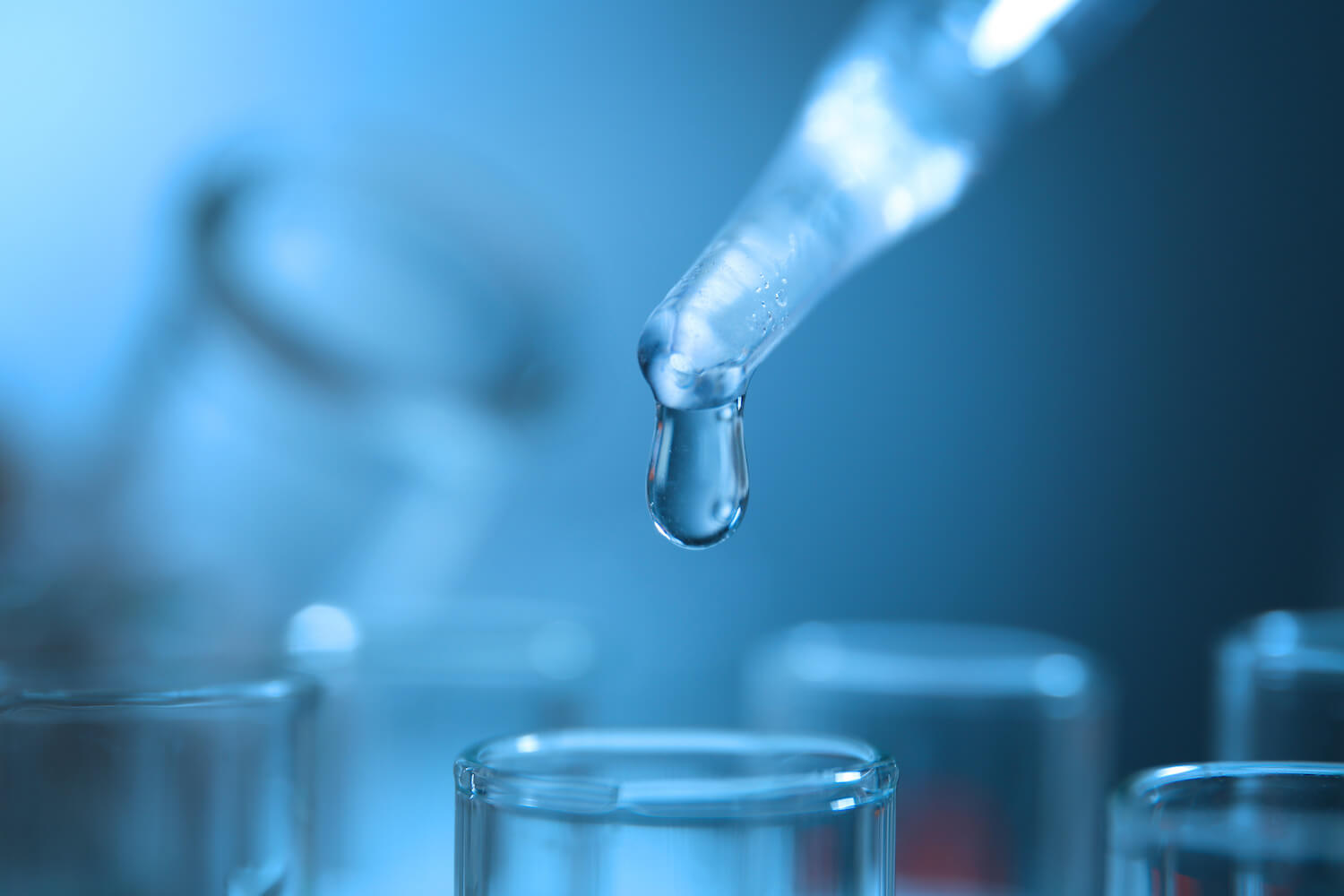EN 14652 Pesticides in Drinking Water Testing
The European Standard EN 14652: Determination of pesticides and their transformation products by liquid chromatography-tandem mass spectrometry (LC-MS/MS) is a critical tool for monitoring the presence of pesticides in drinking water. This test ensures that the quality of drinking water complies with international standards, safeguarding public health from potential exposure to harmful substances.
The standard provides a robust method for analyzing various pesticide compounds and their transformation products, which may be present in trace quantities due to agricultural practices or accidental contamination during production processes. The use of LC-MS/MS technology allows for the detection of these compounds even at extremely low concentrations, making it an indispensable tool for water quality management.
Drinking water suppliers must adhere to stringent regulations set by authorities like the World Health Organization (WHO) and European Union (EU). Compliance with these standards not only protects public health but also ensures trust among consumers. By implementing EN 14652, facilities can demonstrate their commitment to maintaining high-quality drinking water, which is essential for long-term sustainability.
The testing process involves several steps: sample collection, preservation, and preparation; instrumental analysis using LC-MS/MS; data interpretation and reporting. Sample preparation typically includes filtering the water through a fine mesh filter to remove particulate matter. The filtered sample undergoes further treatment such as solid-phase extraction or liquid-liquid extraction before being analyzed.
The acceptance criteria for EN 14652 are based on quantitative limits defined by the standard itself and any additional requirements imposed by national authorities. These limits ensure that no harmful levels of pesticides remain in drinking water, thereby protecting public health.
In summary, compliance with EN 14652 is crucial for maintaining safe drinking water quality. It helps identify potential risks early on and enables prompt corrective actions if necessary. This ensures not only regulatory compliance but also enhances the overall safety and reliability of the supply chain.
- Customer Impact: Assurance of high-quality drinking water, reduced risk of health issues due to pesticide contamination.
- Satisfaction: Increased confidence in the supplier's ability to meet stringent regulatory requirements.
Why Choose This Test
Selecting EN 14652 for testing pesticides in drinking water offers numerous advantages over other methods. Firstly, it provides precise and reliable results due to its advanced LC-MS/MS technology, which can detect trace amounts of harmful substances accurately. Secondly, the standardized procedures outlined by this European Standard ensure consistent results across different laboratories worldwide.
Another significant advantage is the comprehensive nature of EN 14652. It covers a wide range of pesticides and their metabolites, ensuring thorough analysis without overlooking any potential threats to water quality. This all-encompassing approach helps identify multiple types of contamination simultaneously, providing a more holistic view of the drinking water supply.
The test is also cost-effective compared to some alternative methods because it allows for efficient use of resources by minimizing unnecessary steps or equipment requirements. Additionally, EN 14652's widespread acceptance among regulatory bodies and industry stakeholders adds value through recognized credibility.
Furthermore, compliance with this standard can enhance a company's reputation and market position by demonstrating its dedication to environmental responsibility and consumer safety. It shows that the organization takes proactive measures to ensure safe drinking water for all consumers.
Customer Impact and Satisfaction
The implementation of EN 14652 significantly impacts customers by providing them with peace of mind regarding the safety of their drinking water. Knowing that rigorous testing protocols are in place helps build trust between suppliers and consumers, fostering a better relationship. Moreover, satisfied customers contribute positively to brand reputation, which can lead to increased market share and loyalty.
- Health Benefits: Reduction in health risks associated with pesticide exposure.
- Economic Advantages: Avoidance of costly litigation due to contamination incidents.
In addition, satisfied customers are more likely to recommend the supplier to others, creating a ripple effect that benefits both current and potential clients. This positive feedback loop strengthens customer relationships over time, contributing to long-term business success.
Use Cases and Application Examples
- Agricultural Regions: Monitoring water sources used for irrigation to prevent contamination downstream.
- Urban Areas: Regular testing of tap water supplies to ensure compliance with local regulations.
- Bottled Water Plants: Quality control measures ensuring bottled products meet high safety standards.
In agricultural regions, EN 14652 plays a crucial role by helping identify and mitigate risks early on. For urban areas, this test ensures that tap water remains safe for consumption despite potential contamination from various sources. At bottled water plants, the use of this standard guarantees that every batch meets strict quality benchmarks.
The versatility of EN 14652 makes it an essential tool in diverse settings where drinking water safety is paramount. Its application spans multiple sectors, including environmental protection, public health, and consumer confidence.





